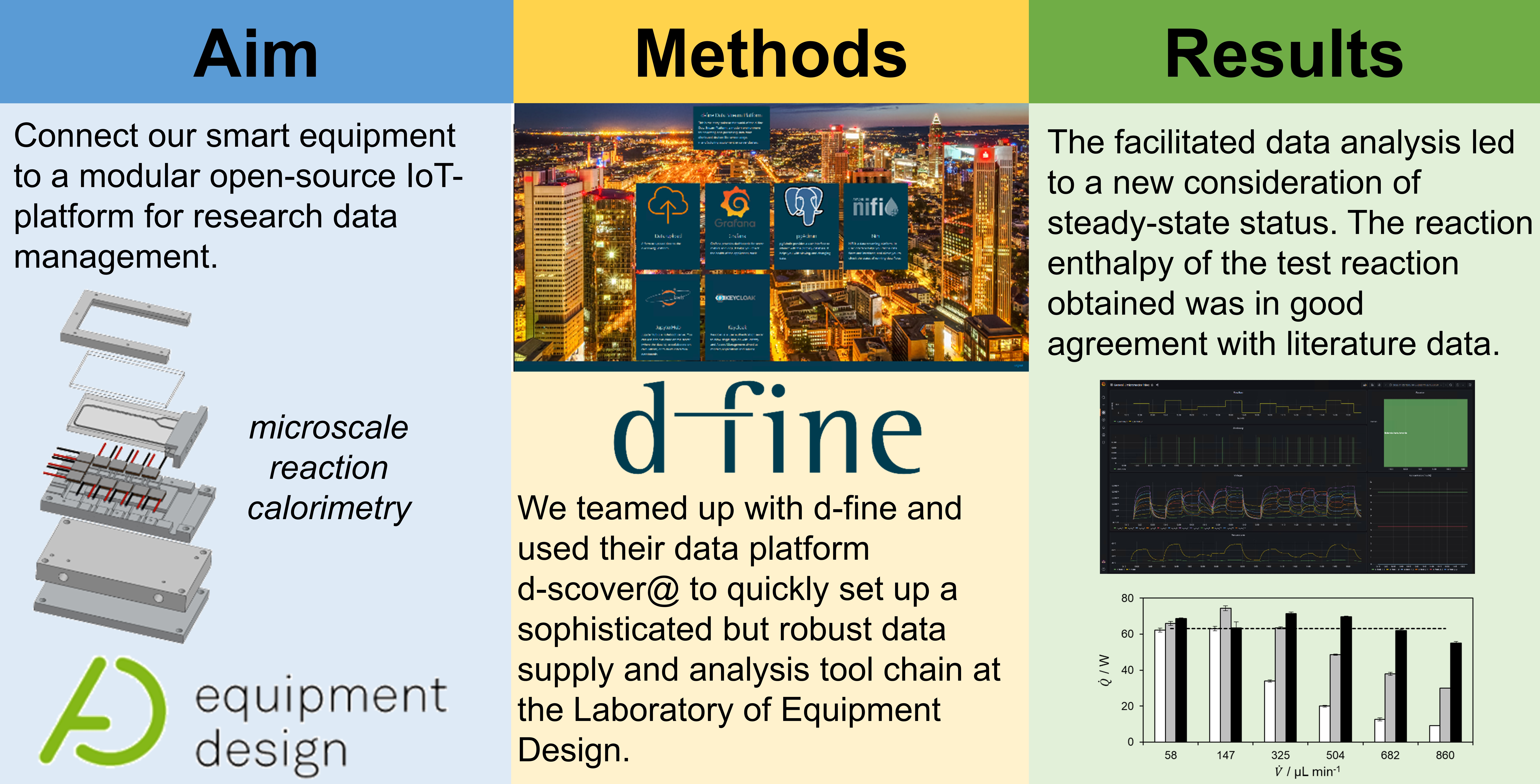Difference between revisions of "Template:Article of the week"
Shawndouglas (talk | contribs) (Updated article of the week text.) |
Shawndouglas (talk | contribs) (Updated article of the week text) |
||
| Line 1: | Line 1: | ||
<div style="float: left; margin: 0.5em 0.9em 0.4em 0em;">[[File: | <div style="float: left; margin: 0.5em 0.9em 0.4em 0em;">[[File:GA1 Frede Processes23 11-1.png|240px]]</div> | ||
'''"[[Journal: | '''"[[Journal:Data management of microscale reaction calorimeter using a modular open-source IoT platform|Data management of microscale reaction calorimeter using a modular open-source IoT platform]]"''' | ||
Unifying research data collection methods and capturing data streams in an organized and standardized manner are becoming increasingly important in [[Laboratory|laboratories]] as digital processes and [[Laboratory automation|automation]] progressively shape the laboratory [[workflow]]s. In this context, the [[internet of things]] (IoT) not only offers the opportunity to minimize time-consuming and repetitive tasks by delegating them to machines, but it also supports scientists in curating data. As a contribution to the establishment of IoT tools in academic research laboratories, a microscale reaction [[calorimeter]] is exemplarily connected to a modular open-source IoT-platform. The microscale calorimeter’s process data is streamed to the data platform for storage and [[Data analysis|analysis]]. Advantages of the platform from academia’s point of view are presented ... ('''[[Journal:Data management of microscale reaction calorimeter using a modular open-source IoT platform|Full article...]]''')<br /> | |||
''Recently featured'': | ''Recently featured'': | ||
{{flowlist | | {{flowlist | | ||
* [[Journal:Integrative diagnostics: The time is now—a report from the International Society for Strategic Studies in Radiology|Integrative diagnostics: The time is now—a report from the International Society for Strategic Studies in Radiology]] | |||
* [[Journal:Ten simple rules for maximizing the recommendations of the NIH data management and sharing plan|Ten simple rules for maximizing the recommendations of the NIH data management and sharing plan]] | * [[Journal:Ten simple rules for maximizing the recommendations of the NIH data management and sharing plan|Ten simple rules for maximizing the recommendations of the NIH data management and sharing plan]] | ||
* [[Journal:Understanding cybersecurity frameworks and information security standards: A review and comprehensive overview|Understanding cybersecurity frameworks and information security standards: A review and comprehensive overview]] | * [[Journal:Understanding cybersecurity frameworks and information security standards: A review and comprehensive overview|Understanding cybersecurity frameworks and information security standards: A review and comprehensive overview]] | ||
}} | }} | ||
Revision as of 15:14, 14 August 2023
"Data management of microscale reaction calorimeter using a modular open-source IoT platform"
Unifying research data collection methods and capturing data streams in an organized and standardized manner are becoming increasingly important in laboratories as digital processes and automation progressively shape the laboratory workflows. In this context, the internet of things (IoT) not only offers the opportunity to minimize time-consuming and repetitive tasks by delegating them to machines, but it also supports scientists in curating data. As a contribution to the establishment of IoT tools in academic research laboratories, a microscale reaction calorimeter is exemplarily connected to a modular open-source IoT-platform. The microscale calorimeter’s process data is streamed to the data platform for storage and analysis. Advantages of the platform from academia’s point of view are presented ... (Full article...)
Recently featured:
- Integrative diagnostics: The time is now—a report from the International Society for Strategic Studies in Radiology
- Ten simple rules for maximizing the recommendations of the NIH data management and sharing plan
- Understanding cybersecurity frameworks and information security standards: A review and comprehensive overview










